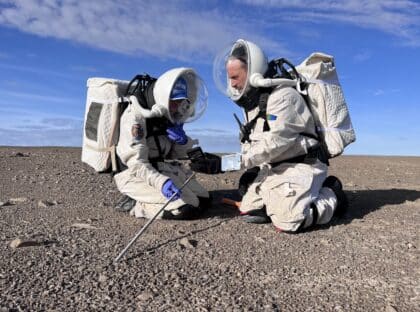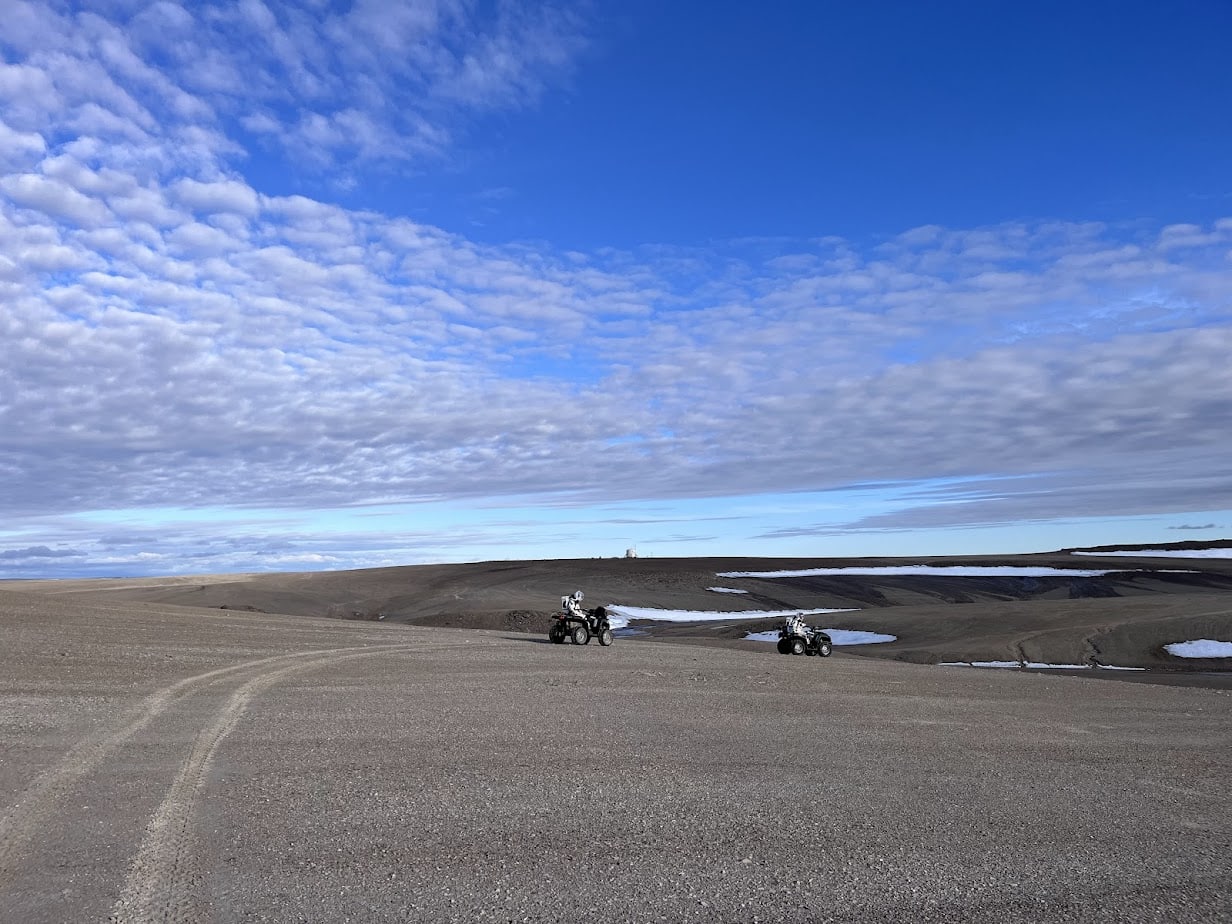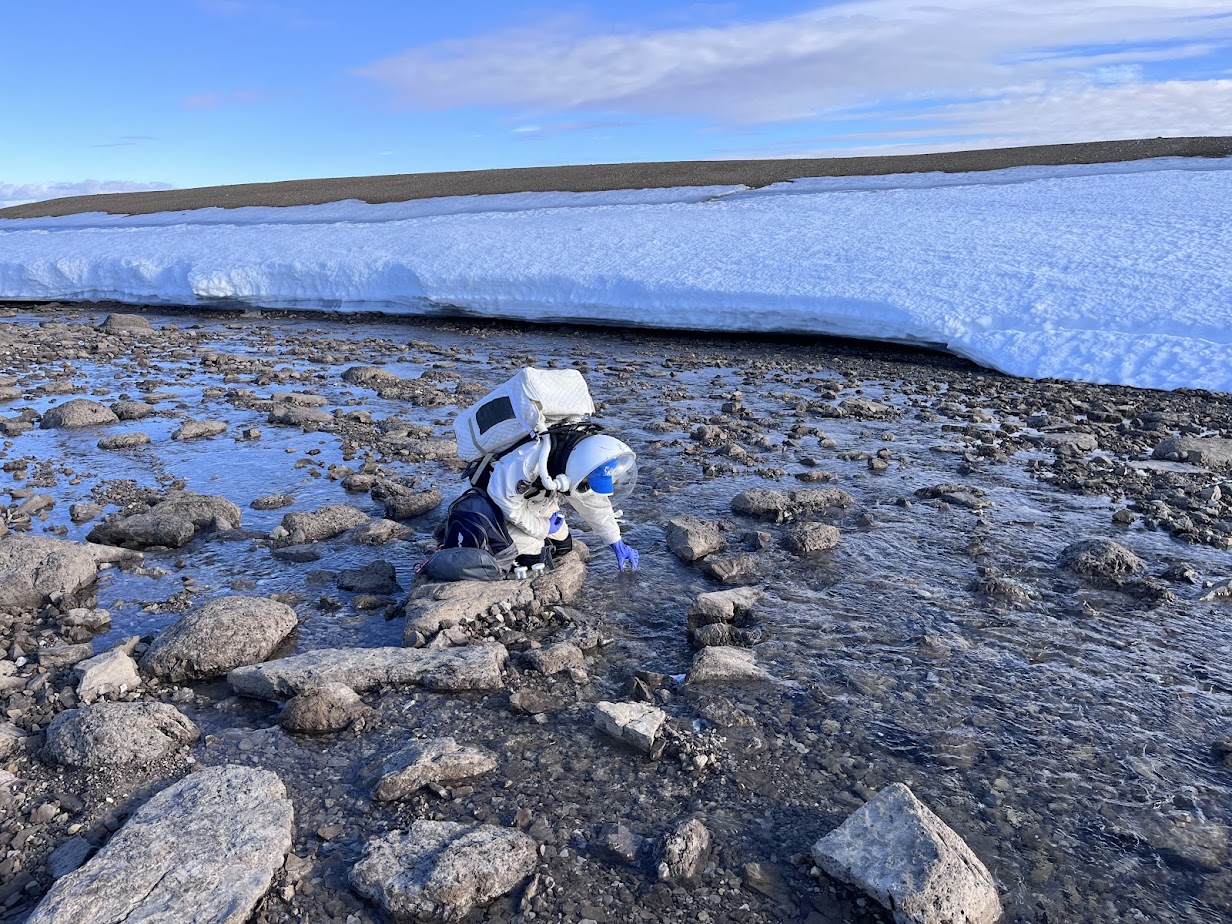
On July 9th, Crew 16 concluded their final full day of simulation at the Flashline Mars Arctic Research Station on Devon Island with two extended analog expeditions, marking a significant milestone in their mission.

In the morning, the crew focused on geological and environmental tasks. They successfully collected breccia rocks, which are known for their fragmented texture, and water samples from various locations around the Haughton Crater. These samples will be essential for studying the geological history and current environmental conditions of the area. Additionally, they dug several holes to determine the depth of the local permafrost, which is critical for understanding the subsurface ice dynamics and potential astrobiological implications.
While a portion of the crew was out “exploring Mars,” others remained in the habitat to prepare for the end of their mission at the Flashline station. These team members were busy checking inventory, ensuring that all supplies were accounted for, and developing standard operating procedures for essential tasks such as refueling generators and tapping fuel drums. This groundwork is crucial for maintaining the station’s functionality for future missions. Furthermore, they installed and tested 3D imaging hardware, a step forward in enhancing the station’s scientific capabilities and providing detailed documentation of their experiments and surroundings.

The afternoon expedition focused on environmental and technological objectives. The crew collected additional water samples specifically for nano-plastics analysis from upstream locations to avoid contamination from human activities. This effort is part of a broader study on the prevalence and impact of microplastics in remote environments. They also tested real-time communication with the habitat using a mobile Starlink user terminal, showcasing the potential for robust and reliable connectivity in isolated regions. During their exploration, the crew discovered a small hill that contained a large stromatolite, providing valuable insights into ancient microbial life and the geological history of the area.
Looking ahead, the crew will begin planning their departure from Devon Island by airplane. Their remaining time will be spent preparing the station for the upcoming Arctic winter, which includes collecting waste for removal, storing outside equipment, and ensuring that the habitat is secure and ready for future missions. These final preparations are essential for the long-term sustainability of the Flashline station and the continued success of Mars analog missions.
Stay tuned for more updates on Crew 16 and their groundbreaking work in the Arctic.